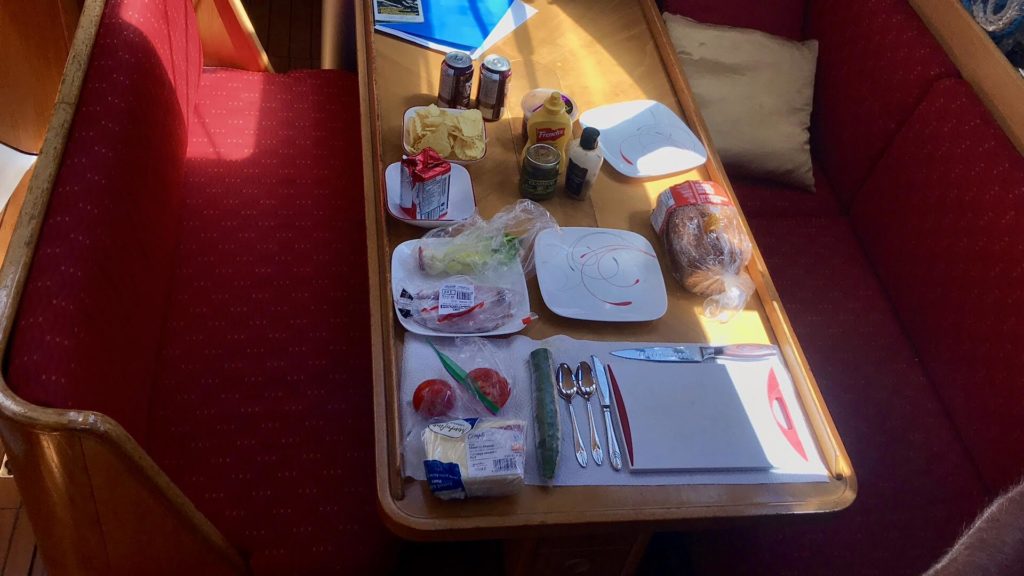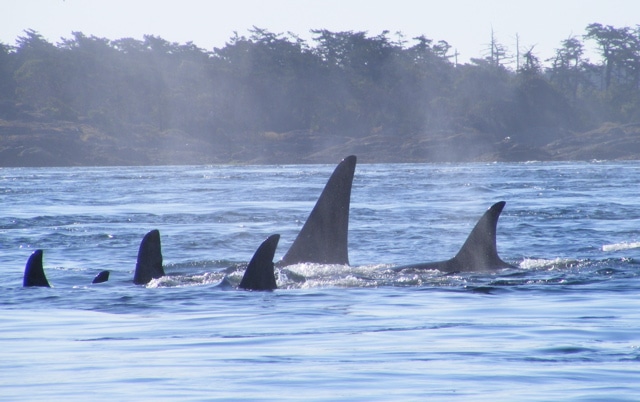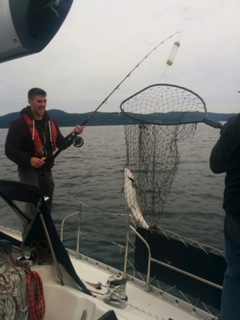The Pleasures of Extended Coastal Cruising on BC’s West Coast
Dawn is gradually colouring the Eastern sky and a little fog is rolling in. Tula is safely alone at anchor, deep inside a maze of small islets near Darby Channel on our Central Coast.
After a quiet night, we are up before the birds and the two student crew. The café mocha expresso coffee smells good and needs to be sampled. And now to check the 4 a.m. Environment Canada forecast on our marine VHF radio.
Hmmm…. fog and light winds. We might need the radar out again, having stowed it away a few days ago. A bald eagle is calling nearby; maybe it resents our presence or is also greeting the day. We begin to contemplate what this cruising life means to us…
What’s In a Name?
Tula joined us in 2004 and with the former owner’s approval, we kept her name. Depending on the particular translation, in Swahili Tula means “peace and calm my children”. She is our tranquil oasis and our good friend on the ocean.

Escape From a Frantic World
At times, our connected modern world is a stressful and panicked place. Tula is our escape. On the ocean, we have no need of television, frightening news from foreign lands, or heavy and continual connectivity.
As we step back to a simpler time, our senses are heightened and we connect with the elements. We delight in pleasant company, the gentle breeze, our favourite restful music and a glass of wine around sundown before a gourmet dinner.
Fending For Ourselves
We are not survivalists, so being prepared is high on our priority list. We teach our students that on the ocean, anything can happen at any time and we cannot rely on others to rescue us.
The Coastguard can help in the event the situation is beyond our absolute control but making that call is a last resort. We encourage our students to be able to confidently handle any on-board emergencies, sudden adverse weather and mechanical failure.
We want them to take a deep breath and then deal calmly with the issue at hand. We often cruise in remote places where services and help are non-existent.
We ensure we have enough provisions, tools, spare parts and fluids to be able to cope with virtually all issues and to travel comfortably for the duration of the voyage. We plan for multiple levels of redundancy so if some piece of equipment fails, then we can rely on a back-up. We plan, plan and plan.
We encourage our students to accept that changes in plan are inevitable and that rigid schedules and deadlines rarely work well on the ocean. We teach the concepts of absolute safety and the minimization of risk to the boat and all on board.

Wildlife on The Way
When operating Tula, we keep a proper watch at all times. And while watch keeping, we are also keeping an eye out for wildlife.
On our cruises, we are usually surrounded by birds and eagles, seals, whales, terrestrial animals and fish and we take pleasure in checking our on-board library to identify rare or unusual wildlife.
Some years ago we were lucky enough to witness a J, K, and L super-pod gathering of 86 orcas. In the Fall of 2015 our two students were stunned by the sight of 42 nearby passing orcas.
We treat wildlife with respect and maintain a proper distance to allow them to go about their business. We are saddened by reports about the state of the ocean; we practice and teach travel with a clean wake.

Challenging Ourselves
Sailors are constantly learning throughout their cruising lives. Thinking you have learned it all can be a dangerous state of mind.
We enjoy the challenge of planning for the next extended coastal voyage, finding satisfaction in a successful repair, preparing a coastal passage plan, trimming our sails to achieve a good boat speed and navigating through difficult waters.
When on Tula, we live in cautious harmony with our ocean world and we want that world to respect us.
Camaraderie of Fellow Mariners
As we travel, we revel in the company of sailors and are constantly impressed by the extent to which sailors will assist those in difficulty. We monitor our radio in case some nearby sailor has problems. We will always help but will not put Tula or those on board in harm’s way.
Some months ago, near the entrance to Victoria harbour, we rescued a father and his young son as their inflatable had overturned and we towed their boat to a safe port. If one cruises enough miles, the law of probability will eventually mean that we will require the help of other mariners. When that day comes, we will accept that help graciously.

Dining at The Table of The Ocean
Up until a year ago, we had always carried some fishing and crab-fishing gear on Tula. We decided to learn more about the fine art of salmon fishing. So we upgraded our rather tired fishing gear, took some lessons, fished with a friend and then set forth.
We were happy with our 2015 fishing season and did well. Next year we will learn more about the wily salmon. We carry wasabi and tamari on board and now often enjoy sushi at 1700 hours in Tula’s cockpit. We still fish for crab regularly.
Our sailboat Tula helps us feed our desire to explore, to quest for the unknown and to challenge ourselves. Even though being under sail is an obsolete form of travel, we sailors are still driven to cast off the dock lines and raise sails to the wind.
It is the call of the ocean, and her call is as strong as ever. Our journey is important, not our destination… we will get there.
Contact Us
If you are interested in cruising on Tula on the BC coast and completing a Sail Canada cruising or CPS marine radio course, please visit www.tulasailing.com and contact us.
You may call us at 778 678-8852 or email Peter (aka Captain Pedro) at peter@tulasailing.com .
If you have any comments about this issue of Tula’s Cruising Log or questions about our live-aboard courses, kindly be in touch. Safe and happy cruising!
